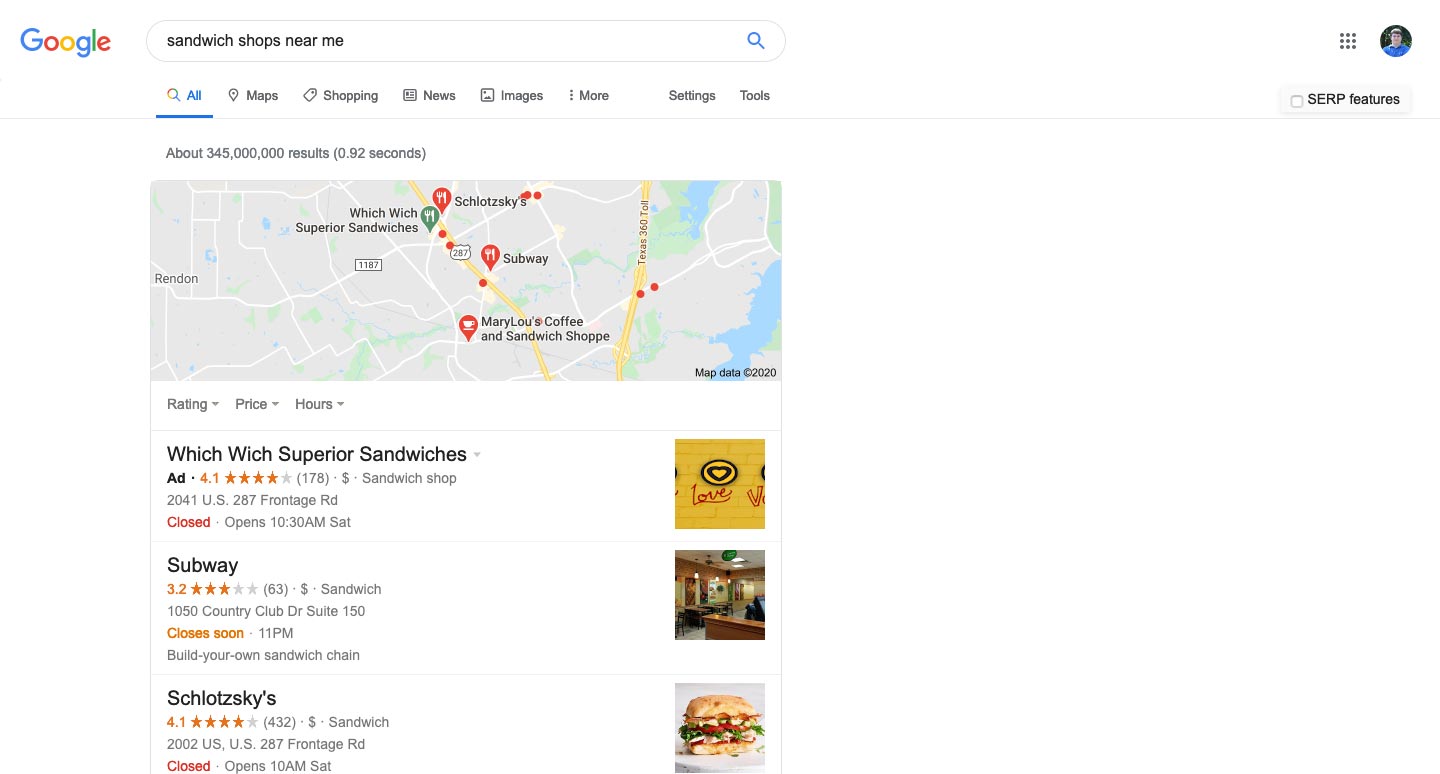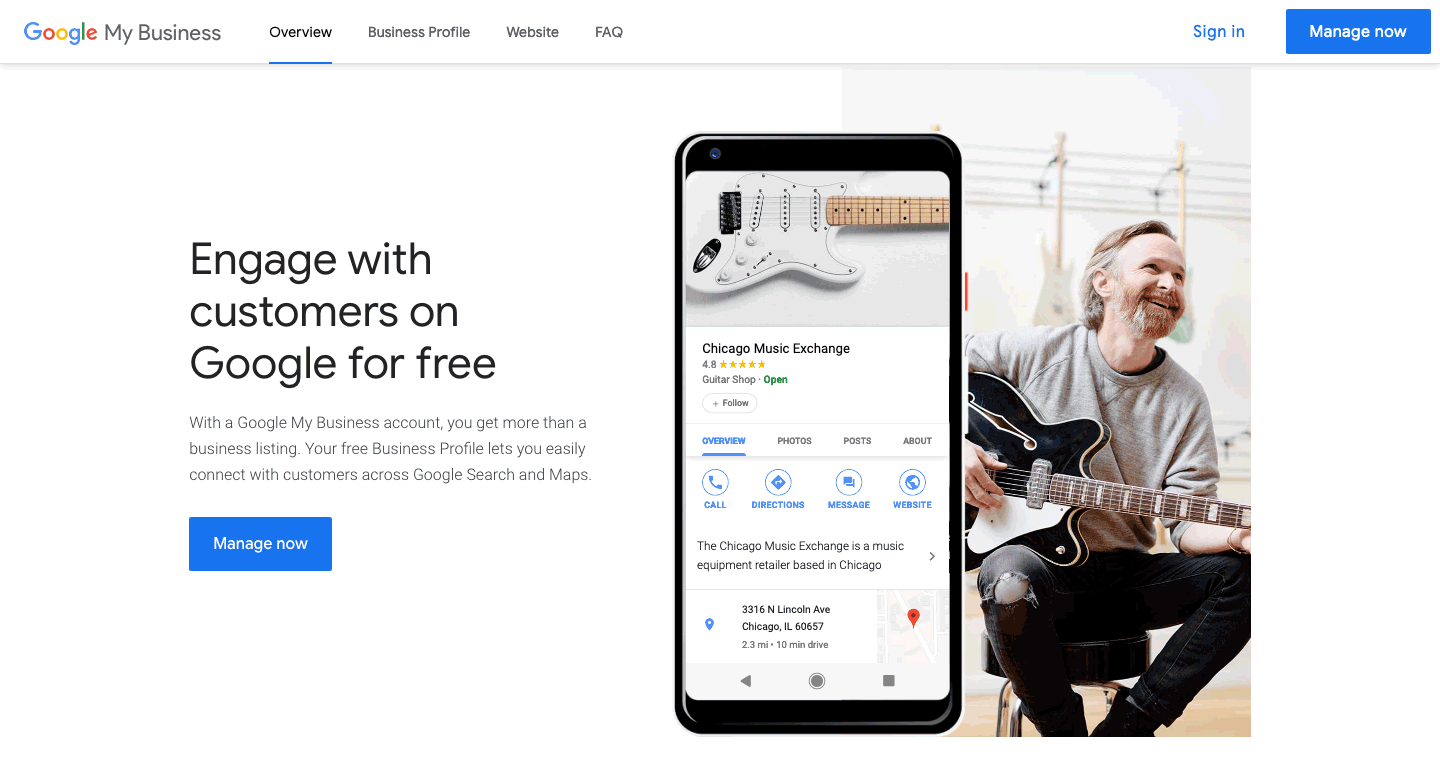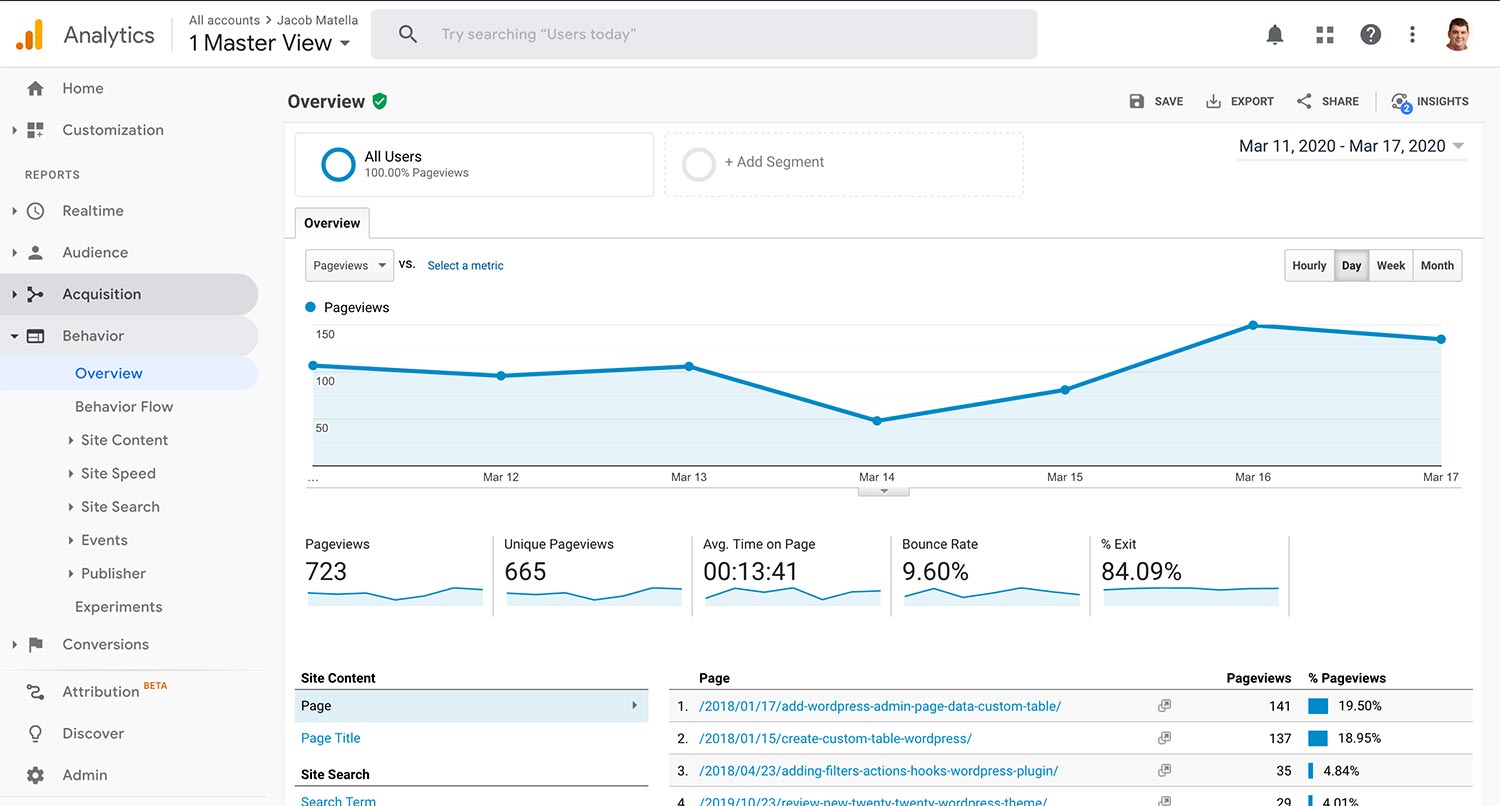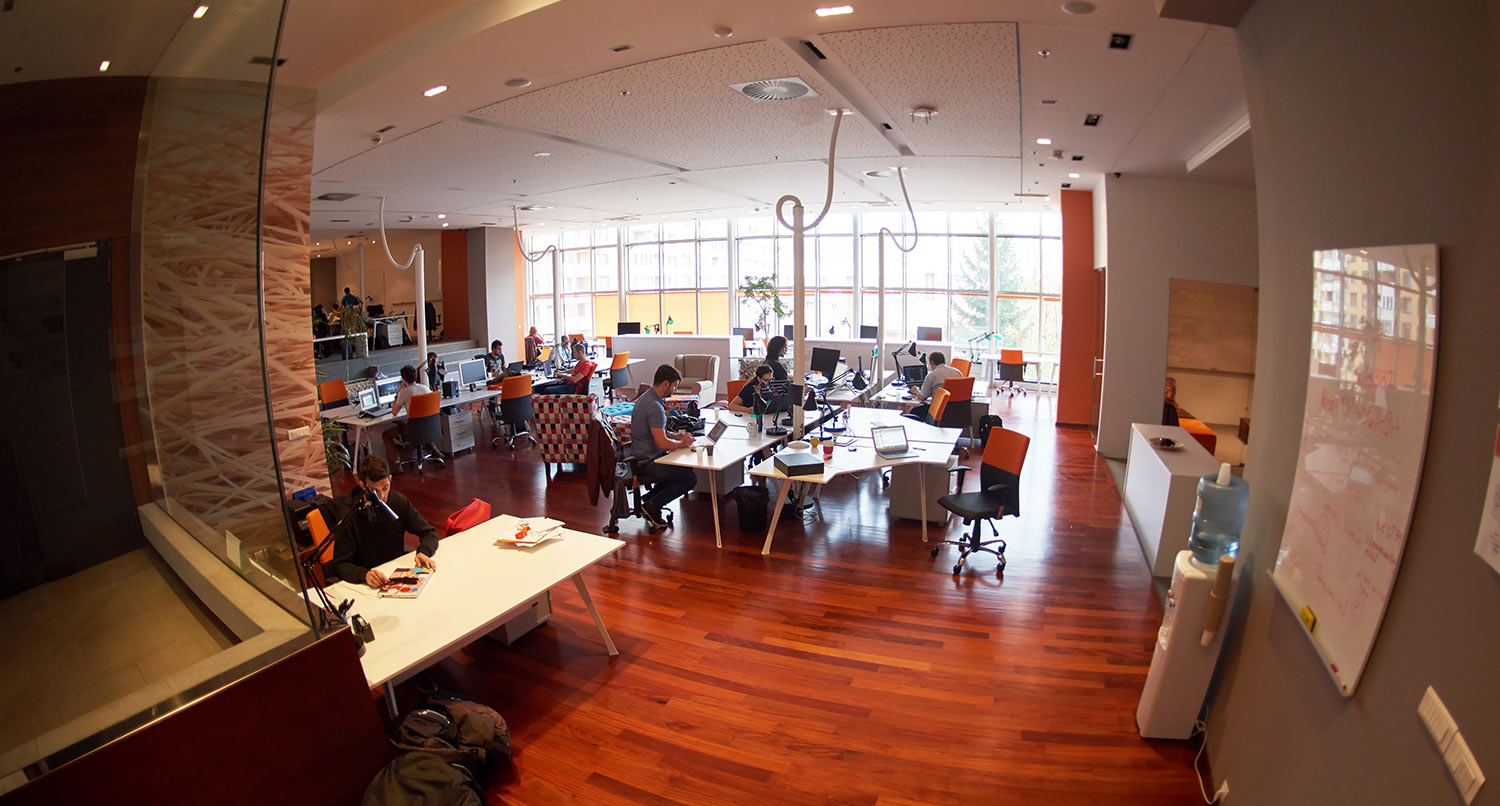So you’re wanting to work on your website’s SEO. That’s great!
But there are so many other people that you have to leapfrog just to get onto the front page. What are you to do about that?
Well, if you are a local business, there’s a work around that can not only get you more prospective customers, but also more likely customers. It’s called Local SEO.
Spending a little bit of time learning about Local SEO and then implementing it on your website can give you a leg up over the competition down the street. So let’s take a dive into it.
What is Local SEO?
Unlike the generic SEO, Local SEO focuses on, well, local searches that people perform every day. You know, this is like searching for some service near you, something that you do probably multiple times a week.
The plus with Local SEO is that you really shrink the amount of competitors that you’re trying to outrank. You’re not trying to outdo some gigantic company across the country. You’re just trying to beat the same type of businesses in your area.
That means with some effort, you can start appearing in the results of people in your area looking for something that you offer.
Plus, these days with Local SEO and Google, there are a lot of benefits. First, if someone searches for something locally, they’ll usually get a list of three businesses nearby, known as the three-pack. And getting listed there greatly increases your odds that they look up your business.
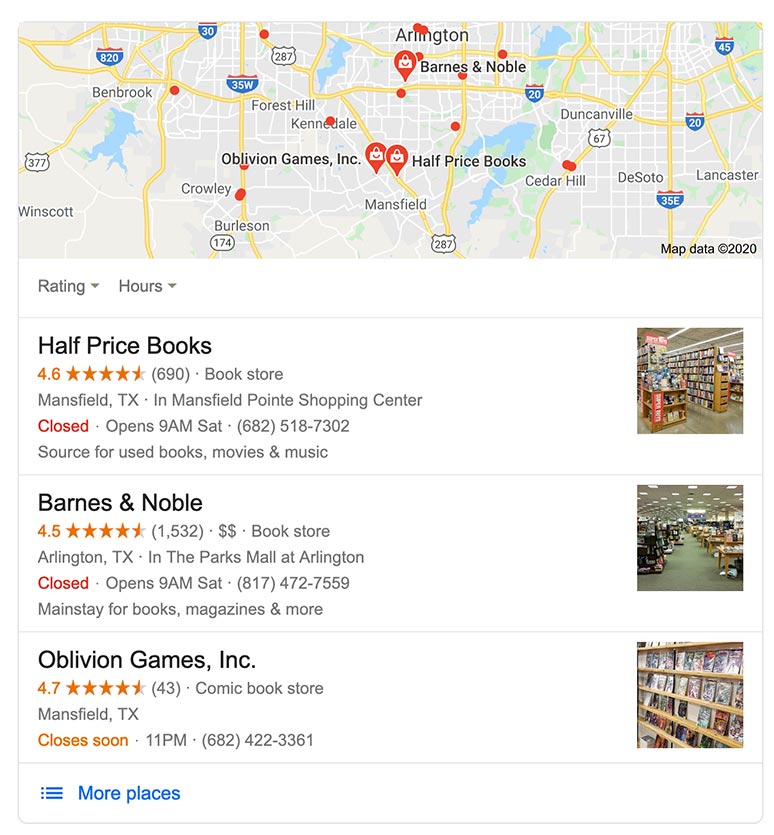
Why does Local SEO matter?
Have you ever gone to Google Maps on your desktop or phone and searched for something? Maybe “sandwich shop” or “gas station”? And have you gotten results that have helped you?
Now, think about the people in your area that might be searching for keywords around your business. Are you showing up in those results?
That is why Local SEO matters for your business. You need to be appearing in those results. People you attract from local searches are more likely to convert into customers, upwards to 80 percent of the time according to WebFX.
And also according to WebFX, 46 percent of Google searches are local searches. If you’re not working to reach those people, you’re missing out on a lot of potential customers.
If you’re looking for a relatively quick and proven way to grow your business online, Local SEO is a very important component to work on.
Start using Google My Business
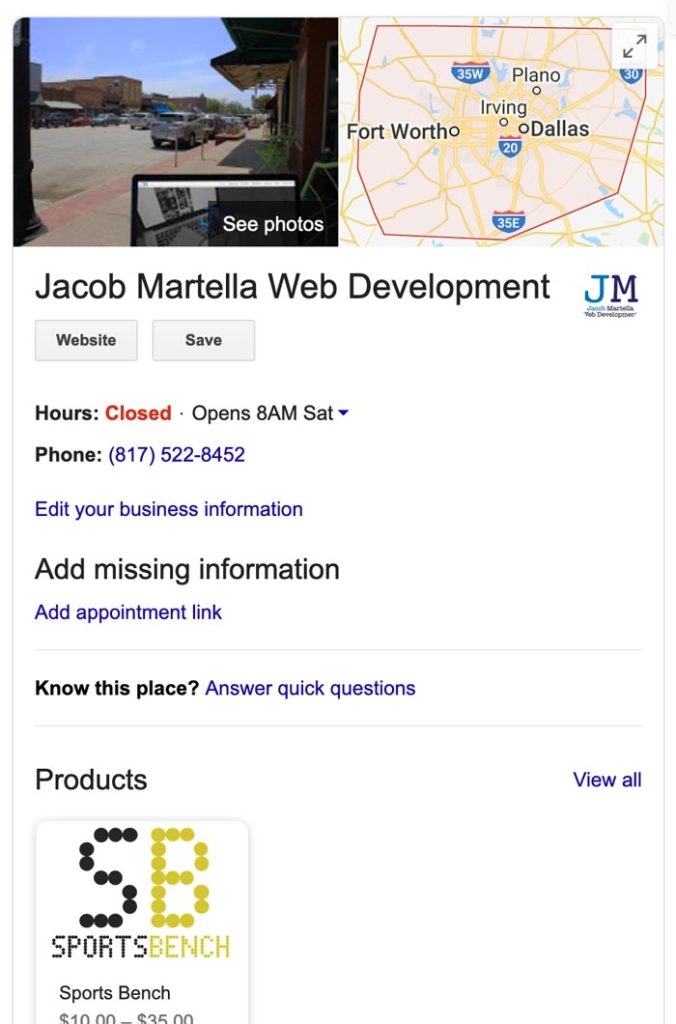
One of the easiest and quickest ways to get started on your Local SEO is to start using Google My Business. I’ve talked about Google My Business, or GMB, before, but here’s what it is in a nutshell.
GMB allows you to create an online profile of your business on Google itself. You enter in your business name, your address, what type of business you are, talk briefly about what your business is, contact information, hours and more.
Through that, Google is able to take that information and index it. Then if someone around your area searches for your keywords, you’ll appear in those results. Plus, all of that information will be displayed for the searcher to look through and even contact you through.
Also, you can get reviews through GMB, which will help your Local SEO ranking, plus you can post images and videos so people can get a better idea of what your business is.
Hands down, GMB is the best tool to help with your Local SEO.
Using location-specific schema and Local SEO
Another way to help out your Local SEO is to use location-specific schema in your website’s code.
What is Schema? Well, it’s markup that was created by the major search engines — Google, Bing and Yahoo — that uses a set of tags “that could be used by the search engines to better understand and display data,” according to Search Engine Journal.
And there is a subset of those tags that deal with organizations and your address. You can use things like “address”, “http://schema.org/PostalAddress” and “addressLocality” to denote your physical address.
So for my website, my footer has the following markup included:
<div itemprop="address" itemscope="" itemtype="http://schema.org/PostalAddress">
<span itemprop="addressLocality" class="screen-reader-text">Mansfield, Texas</span>
</div>
And that way when Google was indexing my website, it already had a lot of information for my business — even before I started using Google My Business.
You might need a developer to help you out with this, but using location-specific schema can really help your Local SEO.
Getting reviews
I touched on this a bit earlier, but reviews are also a great way to boost your Local SEO.
This is mainly tied in with Google My Business, since that all goes directly to Google itself. But the main thing here is that you want quality, genuine reviews of your business. The more legitimate reviews and the higher your overall rating, the higher you’ll end up ranking.
A good thing you can do is to encourage your clients to leave you a review (and don’t forget to send them a link to it) once you’ve completed a project for them. And I have seen some coffee shops and stores have a little placard that encourages customers to leave a review online as well.
Focus on local keywords
This might seem like an obvious one, but also focus on local keywords in your website’s copy as well.
The key is to make sure that it all fits in with the text around it. Don’t just blurt out your location and some keywords around your business randomly. Instead, make sure it makes sense.
So, maybe somewhere on your homepage, you have “top [service keyword] in [location]” or something similar. On your about page, make sure you mention where you are. And also have your address on your contact page.
Those little things can add up.
Let’s work on your SEO and Local SEO
Want to make sure the code for your website is as good as it can be for your SEO and Local SEO? I can help you out with that. I can take a look at the website and make the changes on the back end and suggest changes you can do with your content to give your site the SEO boost to help your business.
Let’s Take a Look at Your SEOLook for local directories
Finally, you want to see where you can put your business information on other websites. You want to look for online business directories centered around your area and enter in your business name, address, phone number and link back to your website.
These links will create back links to your website, and quality links at that. If you use reputable directory sites, Google will recognize that when it sees your link and that can give your site a boost, especially in local searches.
But beware: if you use a shady directory that Google and search engines don’t like, it could actually drop your ranking. So only use reputable directories.
So that’s Local SEO in a nutshell. For any business that works within the community and region around your business, this can be a great help in reaching prospective customers that are more likely to become customers.
So take some time and work on your Local SEO. The results you’ll see with even a minimal-ish effort can make a difference for your business.

